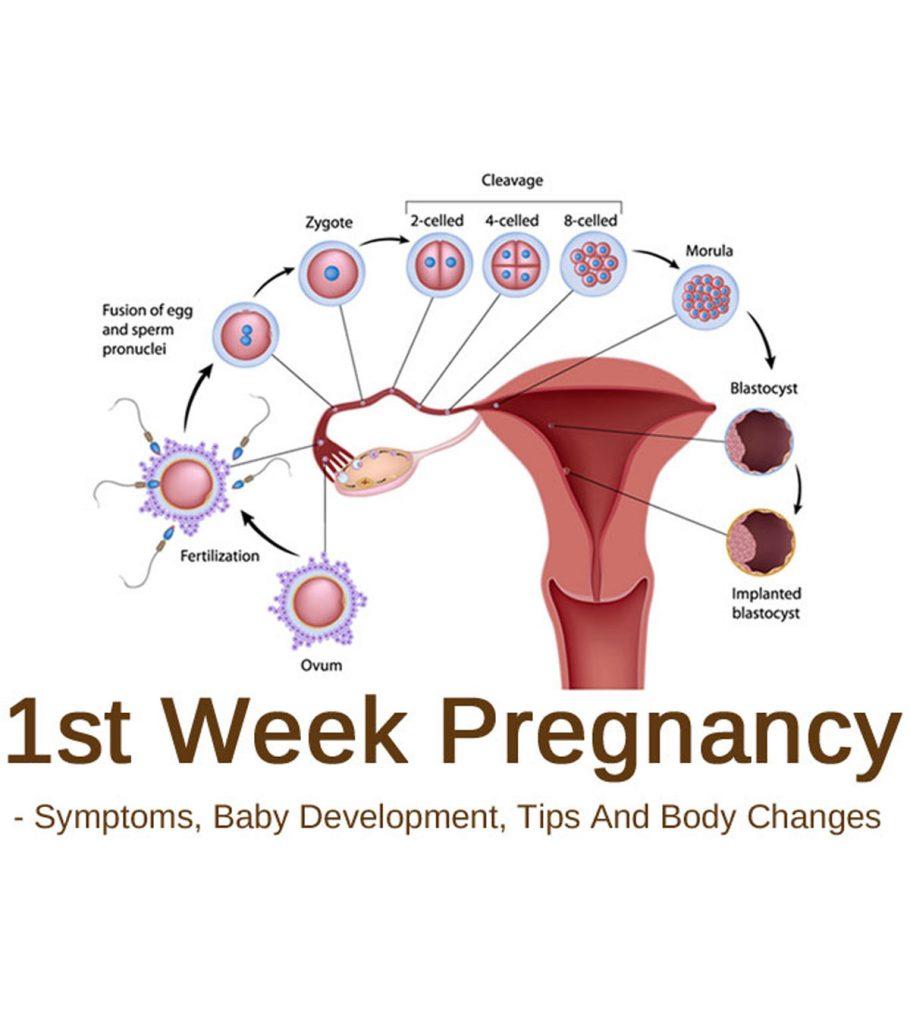
Signs of Pregnancy in the First Weeks
Pregnancy is a beautiful and transformative journey that begins with the conception of a new life. While some women may experience noticeable symptoms in the early weeks of pregnancy, others may not have any signs at all. Understanding the potential signs of pregnancy can help you recognize the possibility of conception and make informed decisions about your health and the health of your baby.
Missed Period
One of the most common and reliable signs of pregnancy is a missed period. If you have a regular menstrual cycle and miss your period by a week or more, it could be an indication that you are pregnant. However, it is important to note that missed periods can also be caused by other factors, such as stress, hormonal imbalances, or certain medications.
Breast Tenderness
During pregnancy, the hormonal changes in your body can cause your breasts to become tender, swollen, and sensitive to the touch. This is because your breasts are preparing to produce milk for your baby. Breast tenderness is often one of the earliest signs of pregnancy, and it can begin as early as a few days after conception.
Nausea and Vomiting (Morning Sickness)
Nausea and vomiting, commonly known as morning sickness, is a common symptom of pregnancy that typically occurs between the fourth and eighth weeks of gestation. While it is often referred to as morning sickness, nausea and vomiting can occur at any time of day. This symptom is caused by the increased levels of the hormone human chorionic gonadotropin (hCG) in your body.
Fatigue
Extreme fatigue is another common sign of early pregnancy. As your body works to support the growth and development of your baby, you may experience overwhelming tiredness and a need for more sleep. Fatigue can begin as early as the first few weeks of pregnancy and can persist throughout the first trimester.
Frequent Urination
As your uterus grows and expands during pregnancy, it can put pressure on your bladder, leading to increased urination. You may find yourself needing to use the bathroom more frequently, especially during the night. This symptom typically becomes more noticeable as your pregnancy progresses.
Implantation Bleeding
Implantation bleeding is a light spotting or bleeding that can occur around the time of implantation, which is when the fertilized egg attaches to the lining of your uterus. This bleeding is usually lighter than a normal period and may last for a few days. Not all women experience implantation bleeding, but it can be an early sign of pregnancy.
Mood Swings
Pregnancy can cause a rollercoaster of emotions due to the hormonal changes in your body. You may experience sudden mood swings, from feeling elated to irritable or anxious. These mood swings are common and usually subside as your body adjusts to the hormonal shifts.
Other Potential Signs
In addition to the common signs mentioned above, there are a few other potential signs of pregnancy that you may experience:
- Food cravings or aversions: You may develop strong cravings for certain foods or an aversion to foods you previously enjoyed.
- Metallic taste in your mouth: Some women experience a metallic taste in their mouth during early pregnancy.
- Constipation: Pregnancy hormones can slow down your digestion, leading to constipation.
- Headaches: Headaches can be a symptom of pregnancy, especially during the first trimester.
- Lightheadedness or dizziness: As your blood volume increases during pregnancy, you may experience lightheadedness or dizziness, especially when standing up.
When to Take a Pregnancy Test
If you are experiencing any of the signs of pregnancy, you may want to take a pregnancy test to confirm your suspicions. Home pregnancy tests are widely available and can provide a quick and accurate result. It is best to wait until after your missed period to take a pregnancy test, as this will increase the accuracy of the result.
Seeking Medical Care
If you have a positive pregnancy test or are experiencing any concerning symptoms, it is important to seek medical care as soon as possible. Your doctor can confirm your pregnancy, monitor your health, and provide guidance on prenatal care.
Conclusion
Recognizing the signs of pregnancy in the first weeks can help you make informed decisions about your health and the health of your baby. While some women may experience noticeable symptoms early on, others may not have any signs at all. If you are unsure whether or not you are pregnant, taking a pregnancy test and seeking medical care can provide you with the necessary information and support.